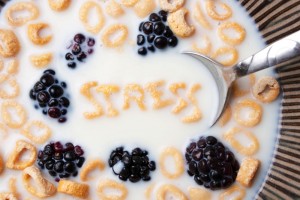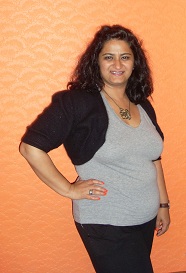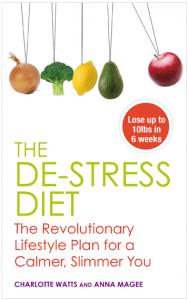
‘I can’t remember the last time I had nothing to worry about,’ she says. ‘I’ve worked with appalling, shouty bosses so I’m wary of keeping my management style level-headed. If a crisis hits – which it does everyday – I internalize everything and end up overwhelmed and panicky. I try and fix problems myself, take on more responsibility and end up more anxious and unable to cope. That’s when heart palpitations and jitters usually set in and I feel I’m running on empty. By evening, I’m so knackered I’ll cancel plans and go home, watch telly for half an hour, eat then sleep.’
Tania is one of a growing legion of Brits whose stress and anxiety levels have soared. This week, the department of work and pensions released figures stating that a staggering 35 per cent of sick days are down to stress, anxiety and depression – the largest cause of absenteeism in the UK. Seven million prescriptions were written last year for anti-anxiety meds and between 2006 and 2011 outpatient appointments for anxiety disorders quadrupled. It’s tempting to blame the masses of extra hours we’re doing to combat the recession’s effects (the Labour Force Survey last year found we work an average of 7.2 hours each a week in unpaid overtime). But health experts are now pointing to a simpler cause: our diets.
A study from Leeds University found women who work long hours in stressful environments are far more likely to opt for unhealthy high fat, high sugar snacks and skip main meals and last year researchers in Germany discovered stress directly increased our cravings for sweets and comfort foods by switching on an ‘anxiety gene’ in our systems.
According to Charlotte Watts, nutritional therapist and co-author of The De-Stress Diet (Hay House £12.99), the quick fix energy foods such as refined carbohydrates and sugars – think chocolate, caffeine, diet drinks, crisps, cakes and stodgy carbs – most of us inhale when we’re up against it set up cycles of chronic stress, anxiety and exhaustion along with mood swings and sleep problems. ‘Most women only see food as something that will make them fat or thin,’ says Watts. ‘They rarely make the link between how they feel and what they eat,’ says Watts. ‘That’s now a proven connection.’
A closer look at Tania Ahsan’s day – and diet – was indeed a clue to her state of mind. ‘I would start the day with strong coffee and skip breakfast,’ says Tania. ‘Then I would mainline coffee throughout the day working my way up to about ten cups.’ Lunchtime was a white bread sandwich with cheese. ‘Then the afternoon was spent keeping myself fuelled up with whatever was available, usually chocolate and more coffee. By dinner I wanted the quickest and easiest thing I could find; usually a tinned soup or microwavable pasta.’
The culprit is blood sugar, Watts explains. ‘When you eat, your body releases the hormone insulin which takes sugar from your bloodstream and converts it into glucose that all your cells can use’. Refined carbohydrates such as biscuits, sweets, chocolate, pastas, white rice and breads along with fizzy drinks hit your body in the form of a fast hit of sugar. ‘You get a quick surge in energy followed by a crash about half an hour later when blood sugar drops dramatically, leaving you craving more of the same,’ she explains. It’s nutritional Catch-22 as stress is now proven to make us crave refined foods and sugars, the very foods that eventually wreak havoc on our moods. ‘A blood sugar crash can leave one person jittery and anxious, while another might get angry – nutritionists call it ‘hangry’ – or sad while another gets panicky. They’re all signs of low blood sugar or hypoglycaemia.’ The more you consume fast-fix sugary foods like these, the more insulin your body releases. ‘Your tolerance to sugar subsequently increases so need more to get the same ‘high’. Plus, your cells may become resistant to insulin, putting you at increased risk of Type-2 diabetes,’ she says.
What about caffeine? ‘It affects the body in a similar way to sugar but also causes the release of the stress hormone adrenalin,’ says Watts. ‘You might get a quick hit of motivation and 30 minutes later feel jumpy and anxious.’ Studies have shown more than 300 mg of caffeine a day may increase anxiety and insomnia (that’s four instant coffees or six Builders’ teas, eight Diet Cokes or just one Starbuck’s Grande). Plus, research shows caffeine enhances only your output for straightforward tasks, not for abstract or subtle thinking. ‘Stick to two a day, one after breakfast and one after lunch,’ suggests Watts. ‘Coffee after eating means the blood sugar spike is slower than having it on an empty stomach – without the crash later’.
If you get tiredness, anxiousness and headaches between mealtimes and feel shaky if you skip meals, you may be at risk of ‘diabesity’ says Mark Hyman, in his recent book The Blood Sugar Solution (Hodder £14.99). Hyman is the renowned US medic credited with reversing Bill Clinton’s health in 2010. Diabesity refers to resistance to insulin eventually caused by a high sugar, high fat diet and can result in mood symptoms such as tension, anxiety and irritability between meals as your body experiences one blood sugar crash after another. ‘If you skip meals or eat too much sugar or refined carbohydrates, you’ll experience swings in blood sugar that make you feel anxious, irritable, tired and can even cause palpitations and panic attacks,’ he explains. ‘Constantly eating chocolate or swigging fizzy drinks will cause a cycle of big spikes in sugar and insulin and a quick surge in energy, followed by more mood symptoms as your blood sugar plummets again.’
Serious anxiety and panic attacks are a medical condition says dietician Sarah Schenker and if you’re experiencing them, see your doctor. ‘However, feeling irritable, tense or jumpy and having difficulty concentrating between meals may be down to mild dehydration,’ she explains. ‘People often ignore thirst and may end up feeling listless, crabby and snappy but rarely attribute that to their water intake.’ A recent study at the University of Connecticut found that mild dehydration – just a 1.5 per cent loss of water in the body – could cause anger, fatigue and mood swings. Most people will need about 1.2 litres of water, Schenker suggests, and for every 30 minutes of exercise, another 50-100 ml.
Could supplements help? ‘Your brain is in constant need of nutrients that are not always available in food because of poor soil and large scale farming,’ says Watts. Plus, what you do get is used up quickly when you’re under stress, especially B vitamins your brain needs for calm, clear thinking. ‘If stress and anxiety is causing you to have trouble sleeping, taking 300 milligrams of magnesium before bed may help calm the nervous system and muscles and promote a better night’s sleep,’ says Watts. Our modern diets are low in omega-3 oils (found primarily in oily fish and algae products) and high in omega-6 oils (found in commercials oils and processed foods) which can make it difficult for your body to produce essential ‘feelgood’ neurotransmitters such as GABA, dopamine and serotonin for calm and focus. Having only two serves of an 140 gram fillet of salmon, mackerel, halibut, sardines or herring provide your weekly intake of omega-3 fats. If you hate fish, try a supplement such as Biocare Mega EPA Forte £20.95 (biocare.co.uk).
For Tania Ahsan, the turning point came when a publisher friend she considered a mentor took her to lunch. ‘He said: ‘Tania, you’re cancelling more engagements, you’re always working and seem irritable and down. I feel you’re heading for that jaded, cynical phase I see many colleagues hit and never recover from’’, she remembers. ‘I knew I was on the brink of burnout and had to do something’.


Three months ago, she tried Watts’s program, The De-Stress Diet after a friend mentioned it in a yoga class. ‘I have only two cups of coffee a day and virtually cut my sugar and refined carbohydrate intake overnight, in favour of lean protein at each meal, such as chicken, fish, lean red meat and eggs and healthy fats from avocados, olives, goats’ cheese, nuts and seeds and virtually quadrupled my vegetable and fruit intake,’ she says. She also cut back on snacks in favour of nutritious meals. ‘I had to make time to eat, especially in the morning and started having porridge with berries and nuts for breakfast. That meant I was more satisfied between meals and my cravings all but disappeared.’ After two weeks Tania’s mood and energy levels had improved and she felt ‘full of beans’. Six weeks later she had lost seven pounds and has given up sugar completely, save for the occasional sweet treat. ‘I still might have a wobble on deadline, but I don’t have those mood roller-coasters anymore or get crushed by every daily crisis. I used to resent what I had to do and plodded on in exhaustion and irritation. Now I feel stronger, calmer, like I can cope again.’
WHAT TO AVOID
Junk fats – new evidence suggests cheap spreads (use butter or olive oil) and refined oils containing trans-fats may increase depression and anxiety. If you’re confused, avoid anything with ‘hydrogenated’ in ingredients.
Sugar and refined carbs – ready-meals, fizzy drinks and take-away foods along with milk chocolate, cakes, sweets and refined ‘white’ carbs. Watch labels for undercover sugar: anything ending in –ose as well as maltodextrin, corn syrup, cane juice, barley malt, molasses or brown rice syrup is sugar.
Mercury-toxic fish Tuna, swordfish and marlin are highest in mercury which some researchers have linked to increased anxiety.
Diet Coke – it increases sweet cravings and can up your risk of mild dehydration – another cause of irritability and mood swings – by making you thirstier.
WHAT TO AVOID
Protein at every meal It satisfies appetite and contains essential amino acids for fewer blood sugar lows, cravings and mood swings. Choose from Greek yoghurt (full fat is higher in protein), nuts/seeds, lean – ideally organic – meats, beans, tofu, poultry or fish at every meal. Eggs and turkey in particular contain tryptophan which help the brain make serotonin and GABA, two essential ‘calm-down’ brain chemicals.
Healthy fats For satisfaction and keeping sweet cravings at bay. Include avocado, almonds, nuts, seeds, olives, crushed flaxseeds, sesame seeds and oil, coconut or extra virgin olive oil or a pat of butter on vegetables (helps you feel more satiated and increase absorption of fat-soluble antioxidants from the veggies) at each meal.
Alkalizing foods Vegetables, fruit, seeds, herbs and spices are all alkaline foods that can help balance the acid build up in the stomach from a high-stress lifestyle. Great sources include almonds, coconut, sesame seeds, pine nuts and adding lemon juice to water and dressings.
Enough water Have non-sugary, non-caffeinated drinks in between meals as your thirst dictates but don’t glug down litres at once as this strains kidneys. Along with water, green or herbal teas and coconut water (brilliant post-workout) add to your quota.
Dark chocolate A study found that having a 40gram bar of dark chocolate daily helped women cope with stress. Green & Blacks anyone?
A pre-bed snack Especially if you wake with a jolt at 4am (a classic anxiety symptom). Celery contains apigenin, which helps inhibit the release of stress hormones and relax the nervous system (try a few sticks some sugar-free peanut or almond butter) or half a banana for its tryptophan content. Avoid cheese, chocolate, sauerkraut, bacon, ham, sausage, aubergine and tomato close to bed as they contain the amino acid tyramine which could increase adrenalin and wakefulness.

Like this article? Sign up to our newsletter to get more articles like this delivered straight to your inbox.




















































